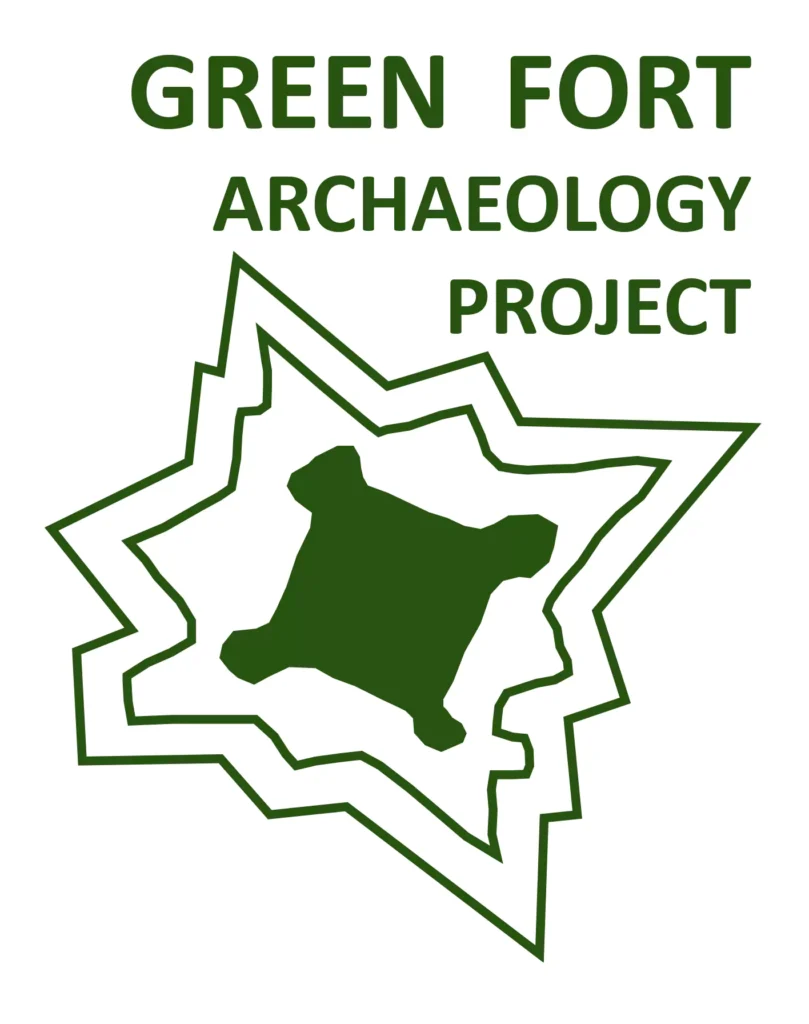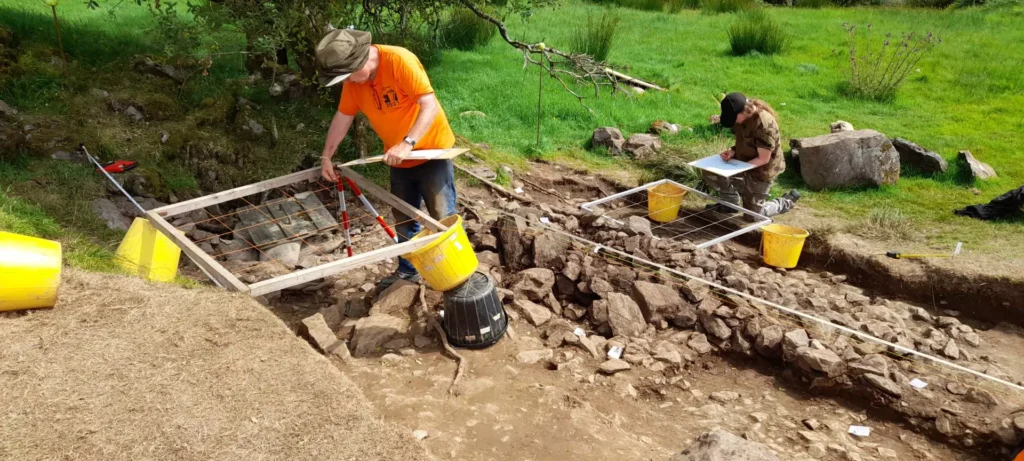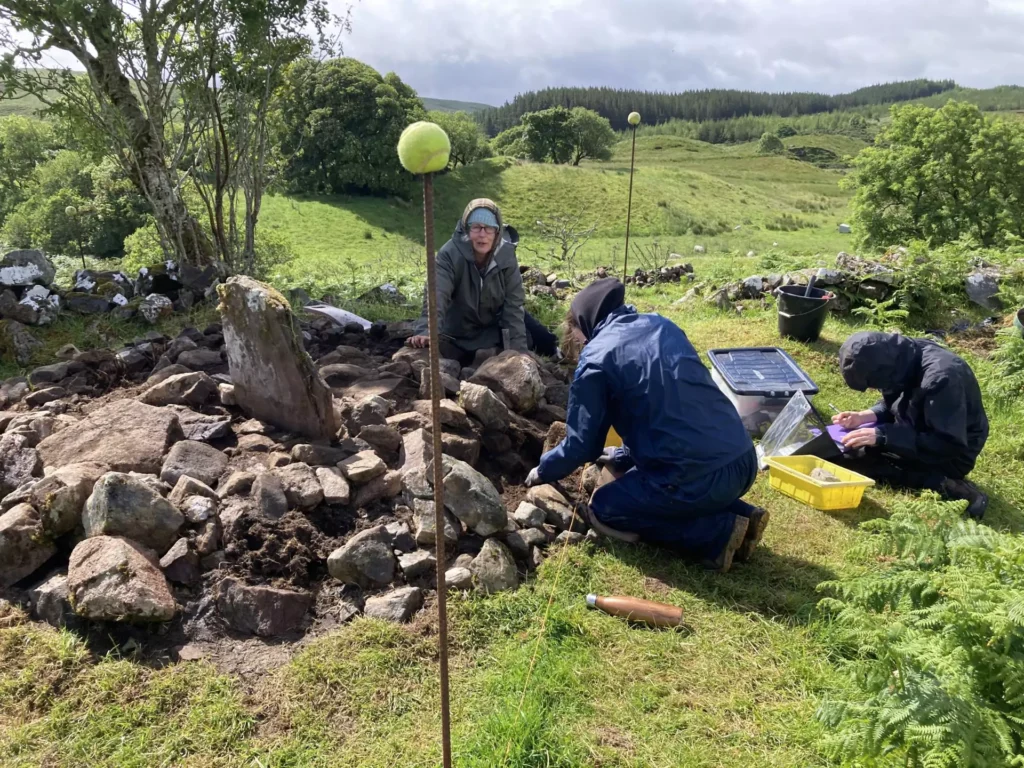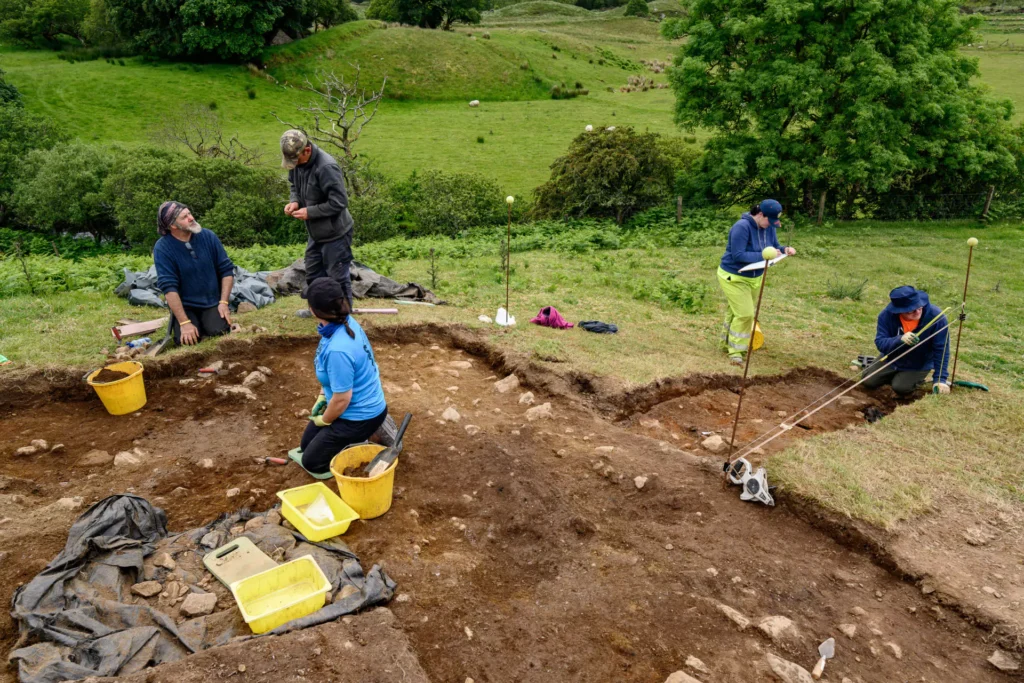Courses
Archaeological Excavation and Post-excavation
Certificate
Course Details
| Course Code | SG_SARCH_S06 |
|---|---|
| Level | 6 |
| Duration | 1 semester |
| Credits | 10 |
| Method of Delivery | Blended |
| Campus Locations | Sligo |
| Mode of Delivery | Part Time |
Course Overview
The aim of this programme is to provide theoretical knowledge and practical experience of archaeological excavation and post-excavation analysis skills, with 3 weeks on site in Sligo. The course is based at the Green Fort, Sligo, and at our Archaeology Laboratory at Atlantic Technological University Sligo in the Northwest of Ireland.
The programme is made up of two modules. Online classes (2 hours per week) commence from early March. By completing the theoretical aspects of the course online and in advance of the field school, students gain the maximum benefit from their time in the field. Students then attend practical sessions in Sligo in June. By the end of the programme, students will have gained hands-on experience excavating on this fascinating medieval and post-medieval site and will understand what is involved in post-excavation analysis and how these fit into a larger research project. Students will also have a knowledge of Irish archaeology and history, with a particular focus on the landscapes of NW Ireland.
Other archaeology certificate courses you may be interested in
This certificate course will be delivered by Dr Fiona Beglane and Dr Marion Dowd.
Programme Structure
This Special Purpose Award will comprise two modules, each worth 5 credits:
– Archaeological Excavation and Post-Excavation 1
– Archaeological Excavation and Post-Excavation 2
Note that modules ‘Archaeological Excavation and Post-Excavation 1’ and ‘Archaeological Excavation and Post-Excavation 2’ must be completed in the same semester, except where the student has already successfully completed the module ‘Archaeological Excavation and Post-Excavation 1’.
The Green Fort
The Green Fort is a bastioned or star-shaped military fort with spectacular and extensive views overlooking Sligo Town, Sligo Bay and the surrounding mountains in the north-west of Ireland. It was probably constructed in 1599 during the Nine Years War (1594-1603), on the site of an early medieval ringfort (circa 6th-10th century AD) known as Raith d Briotúcc, which is understood to mean Brittons Fort, or the fort of the two stuttering women, or the fort of the two British women. The Green Fort became a strategic defensive base during the Williamite Wars (1688-91). Initially held by the Williamite forces, it then became a Jacobite base, but was subsequently besieged and retaken by the Williamites.
Situated within the modern town of Sligo and, working with Sligo County Council, this archaeological excavation project aims to examine the role of the Green Fort in the history of the town and surrounding area and to communicate these findings to the public.
The focus of excavation will be on understanding the dating and origin of the site as well as the nature of features identified by fieldwalking, geophysics and survey. Students will be working closely with fieldwork volunteers from the local community to unpick the story of this fascinating place. They will gain experience of excavating, recording and surveying sites. In the laboratory at ATU, students will undertake important aspects of post-excavation including cataloging and processing artefacts and samples, and preparing artefacts for conservation. They will also have the opportunity to undertake introductions to archaeological illustration and constructing 3-D digital models using photogrammetry, as well as interactive demonstration sessions. Fieldtrips will provide an insight into the archaeology of the wider area, and in the evenings, students will gain an insight into Irish culture, society, and hospitality.
Location and travel
The excavation and post-excavation analysis will take place in Sligo. The excavation is within easy walking distance of Sligo town and a range of accommodation choices. Post-excavation analysis will take place at ATU Sligo, again this is walking distance from Sligo town. Students are responsible for their own transfer at the start/end of the course. Bus Eireann Expressway buses run frequently and directly between Dublin City, Dublin Airport and Sligo town. Trains run frequently and directly between Dublin City and Sligo town. Advice will be provided to students at the online sessions.
Accommodation and food
Accommodation and food are not included but suitable facilities will be recommended at the online sessions. This allows students to suit their own budget and needs, and to share accommodation if they wish to do so. Those without their own transport will need to stay within walking distance of the excavation and ATU Sligo.
Fitness and safety
Note that the excavation requires a reasonable level of physical fitness. Students will need to be able to walk over rough ground for 500m or more without difficulty, excavation is a physical activity that requires a similar level of fitness to gardening. You should be aware that you may be outside in all weathers for extended periods.
Online classes (Early March to mid-May)
Students will undertake online classes for two hours per week from early March to mid May. These will introduce students to the history and archaeology of the Green Fort, archaeological techniques and recording. For those unable to attend the live classes, these will be recorded and students can watch these at a time to suit their own schedule.
The Excavation and post-excavation (1-19 June 2026)
A topographical survey of the ‘Green Fort’ was carried out by Sam Moore and students of IT Sligo now ATU Sligo) over a number of years. In 2021 Eoin Halpin of AHC Ltd used this baseline to record the present state of the monument as part of scrub clearance works undertaken by Sligo Co. Co. Following on from this, also in 2021, Sligo Co. Co. commissioned licensed geophysical (magnetometer and resistivity) surveys of the monument, which were conducted by Archaeological Consultancy Services Unit (ACSU). The topographic and geophysical surveys have informed the excavation methodology, providing a focus for planning trench locations.
The first two weeks of the course will concentrate on excavation, while the third week will concentrate on post-excavation analysis. In the event of sustained bad weather in the first fortnight, indoor work will be undertaken, with the aim of making up lost excavation time in the third week.
Excavation
The excavation will focus on a single 30m long trench in the interior of the fort. This will provide an insight into the structures and features that have been identified by geophysics and survey, in particular a circular anomaly in the centre of the fort.
The overall aim of the project is to investigate the nature and origin of the archaeological remains at the Green Fort and to place them in their wider cultural and landscape context. Students will contribute to this overall excavation aim through their input to the survey, excavation and recording work on site. The Green Fort is visited regularly by tourists and locals, and students will also have the opportunity to develop skills in explaining heritage to members of the public.
Post-excavation Analysis
Post-excavation analysis will take place in the Archaeology Lab at ATU Sligo. Students will undertake essential tasks such as washing artefacts and ecofacts; processing soils for specialist analysis; preparing stratigraphic matrices and reports; illustrating and photographing artefacts. They will gain an awareness of the component parts of the post excavation process and the roles played by various specialists. They will contribute material for creation of the final excavation report and ultimately work towards bringing an excavation to full publication, and the preparation of the archive for final deposition in the National Museum of Ireland.




Course Details
Year 1
| Semester | Module Details | Credits | Mandatory / Elective |
|---|---|---|---|
| 1 |
Archaeological Excavation and Post-Excavation 1The aim of this module is to provide practical experience of archaeological excavation skills, with an introduction to some aspects of the post-excavation process. The module runs online for a number of sessions throughout the semester and then for two weeks on-site at the end of the semester. Learning Outcomes 1. Have a knowledge of aspects of Irish archaeology and history 2. Demonstrate awareness of and an ability to carry out key archaeological excavation and recording techniques. 3. Understand and be able to explain how an archaeological excavation is conducted. |
05 | Mandatory |
| 1 |
Archaeological Excavation and Post-Excavation 2The aim of this module is to provide practical experience of closing an archaeological excavation and of post-excavation skills. The module runs weekly online through the Spring semester, and then for one week on-site at the end of the semester. Note that a co/prerequisite for this module is that the student is also registered for, or has already successfully completed, the module 'Archaeological Excavation and Post-Excavation 1'. Learning Outcomes 1. Differentiate soil horizons and stratigraphic contexts and express these in both matrix and written formats 2. Demonstrate an awareness of the component parts of the post excavation process and the roles played by various specialists. 3. Demonstrate an ability to carry out a variety of post-excavation related tasks |
05 | Mandatory |
Recommended Study Hours per week
Examination and Assessment
On-Campus Attendance Requirement
Note: Check programme Examination and Assessment requirements, as they may involve examinations to be taken on campus.
Progression
Graduates may progress to another Level 6 or Level 7 SPA programme. The following archaeology programmes are currently offered by ATU Sligo:
SG_SARCH_S06 , SPA Archaeological Excavation and Post-Excavation , L6 , ECTS 10
SG_SARCI_S06 , SPA Archaeological Excavation and Post-Excavation (International) , L6 , ECTS 12
SG_SARCJ_S06 , SPA Archaeological Field Studies (International), L6 , ECTS 18
SG_SINTR_S06 , SPA Introduction to Irish Archaeology , L6 , ECTS 15
SG_SPREH_S06 , SPA Prehistoric Archaeology of Ireland and Europe , L6 , ECTS 15
SG_SIRIS_S06 , SPA Irish Medieval History and Archaeology , L6 , ECTS 15
SG_SINTR_S07 , SPA Introduction to Archaeological Interpretation , L7 , ECTS 15
SG_SRITU_S07 , SPA Ritual and Meaning in Archaeology , L7 , ECTS 15
SG_SBUIN_S07 , SPA Buildings Archaeology (Online), L7 , ECTS 15
SG_SBUIM_S07 , SPA Buildings Archaeology (Blended) , L7 , ECTS 15
Download a prospectus
Entry Requirements
This Special Purpose Award is open to all qualified applicants, those with an existing Level 5, and individuals who have other relevant experience.
Applicants are required to submit a CV as part of their application.
Careers
Graduates of this Special Purpose Award may find work as guides or volunteers in local museums and heritage centres; as guides on OPW sites; as General Operatives or volunteers on research excavations; and as General Operatives or volunteers on commercial excavations.
This SPA will also cater to the interested public, not desiring credits.
The cert will be of benefit to those who currently work in the national and international tourist market and wish to upskill, including tourist bus drivers/guides, those in cultural heritage tourism, those who run their own tourism companies or heritage centres, and those who working with local community groups on heritage tourism and/or heritage education.
This SPA could also be offered as a CPD course for local authorities.
Further Information
Application Closing Date
Start Date
Who Should Apply?
This course is suitable for a wide range of people, with no previous archaeological experience necessary. It may appeal to students of archaeology, life-long learners with an interest in archaeology, those working in tourism or heritage related areas. Note that the excavation requires a reasonable level of physical fitness.
Contact Information
Dr Fiona Beglane
E: fiona.beglane@atu.ie
Admissions Office
T: 353 (0) 71 931 8511
E: admissions.sligo@atu.ie
Online Student Advisor
Saoirse Kennedy
T: +353 71 930 5482
E: Saoirse.kennedy@atu.ie
Environmental Science


